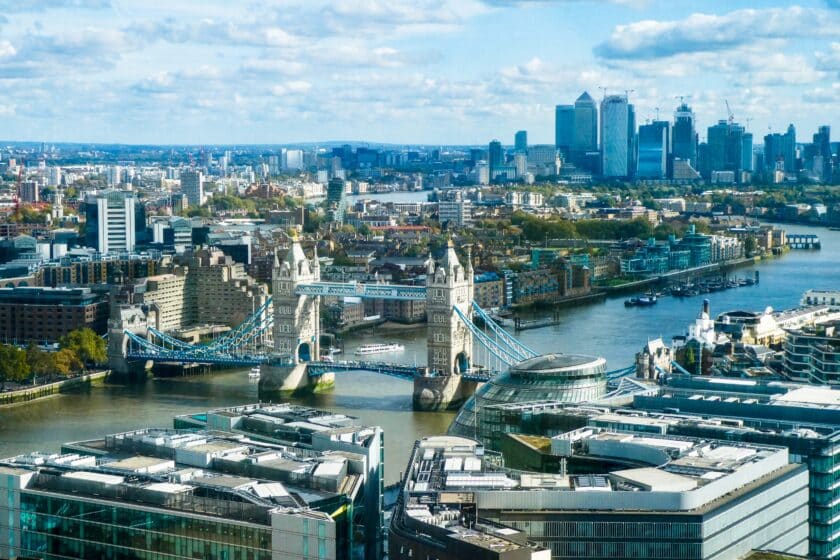The UK economy grew by 0.2% in August following a fall of 0.6% in July, but the uptick in activity may not be enough to hold off recession, experts warn.
The growth in economic activity was driven by a 0.4% rise in services, particularly education, engineers and architectural and legal firms, the Office for National Statistics said.
However, output in consumer-facing services fell by 0.6% in August after a fall of 0.2% the previous month, while production output fell by 0.7%.
Looking at the broader picture, GDP increased by 0.3% in the three months to August 2023, with growth in all sectors.
Yet, despite the modest growth in August, fears of a recession continue to grow. Earlier this week, the International Monetary Fund predicted that the UK would be the slowest growing economy across the G7 next year.
The Bank of England recently paused its long run of interest rate hikes after cutting its forecast for economic growth in the July-September period to just 0.1% from August’s forecast of 0.4% and signs of weakness in the housing market.
Richard Carter, head of fixed interest research at Quilter Cheviot, said: “Though the Bank of England has pressed pause on its rate hiking cycle for now, it still has an incredibly challenging job to do and it may still return to raising rates later in the year or into the next.
“However, with an election fast approaching the Bank will be keen not to overcorrect and will instead begin to assess what impact its action has had to date. We don’t necessarily see the case for further rate rise and things will continue to bite for consumers as a result of the lag effect of the rate rise. With rates now higher for longer, consumers and businesses will need to adapt to this new environment, one many haven’t faced in their lifetimes.
“The economy may be holding up for now, but whether or not the UK truly manages to avoid a recession is yet to be seen. The speed of interest rate rises and the impact of the cost-of-living crisis may mean the pain is simply delayed, and 2024 could prove considerably more difficult.”
Danni Hewson, head of financial analysis at AJ Bell, echoed the sentiment: “On the one hand 0.2% could be considered the Goldilocks of GDP growth. Not too hot to suggest the Bank of England has more work to do to slow down the economy, not too cold to suggest its measures have completely stalled the engine. And the fact that August stormed back from July’s damp and dismal decline is testament to the resilience of the UK economy.
“But despite August’s growth, July’s contraction was worse than had been thought and the disruption from rail strikes in September is already making economists concerned about the next set of figures.
“There’s been a lot of talk of recession and with growth so slim it’s beginning to feel almost inevitable. The full extent of increased borrowing costs has yet to be felt and as temperatures cool and thermostats are eyed warily there’s a real sense that economic resilience is fraying.”






























